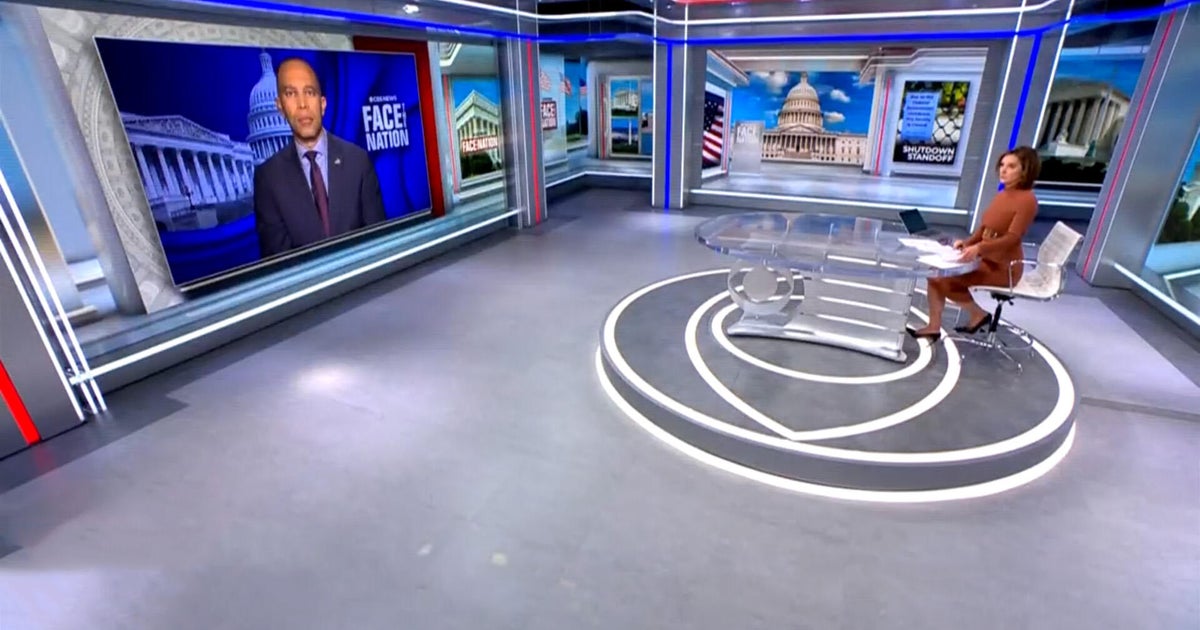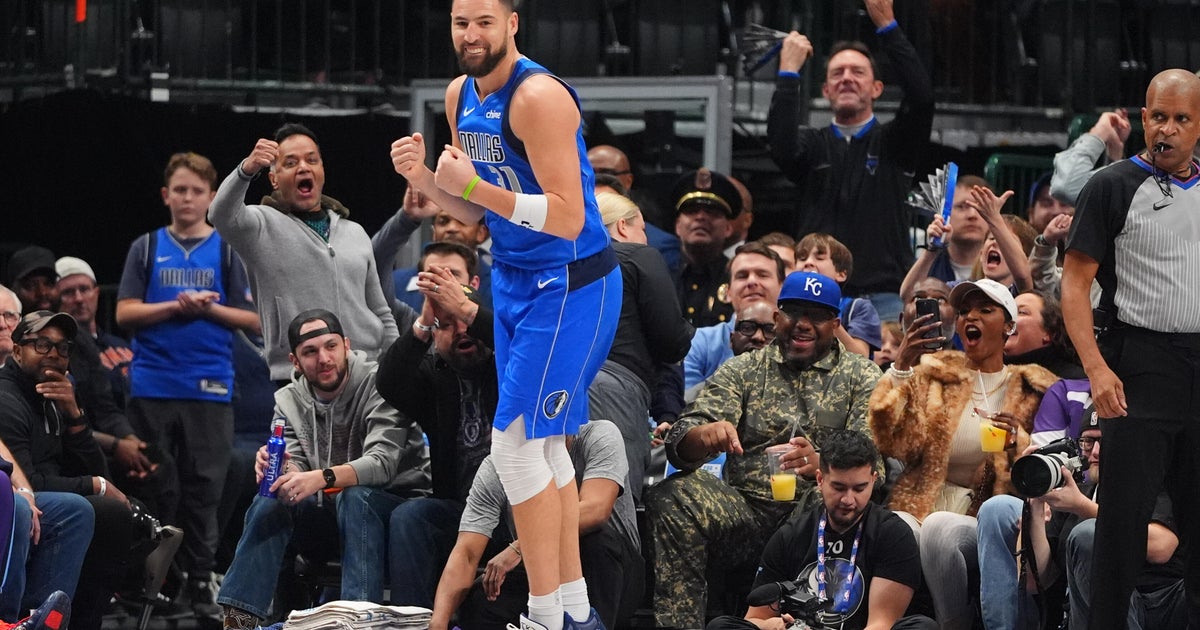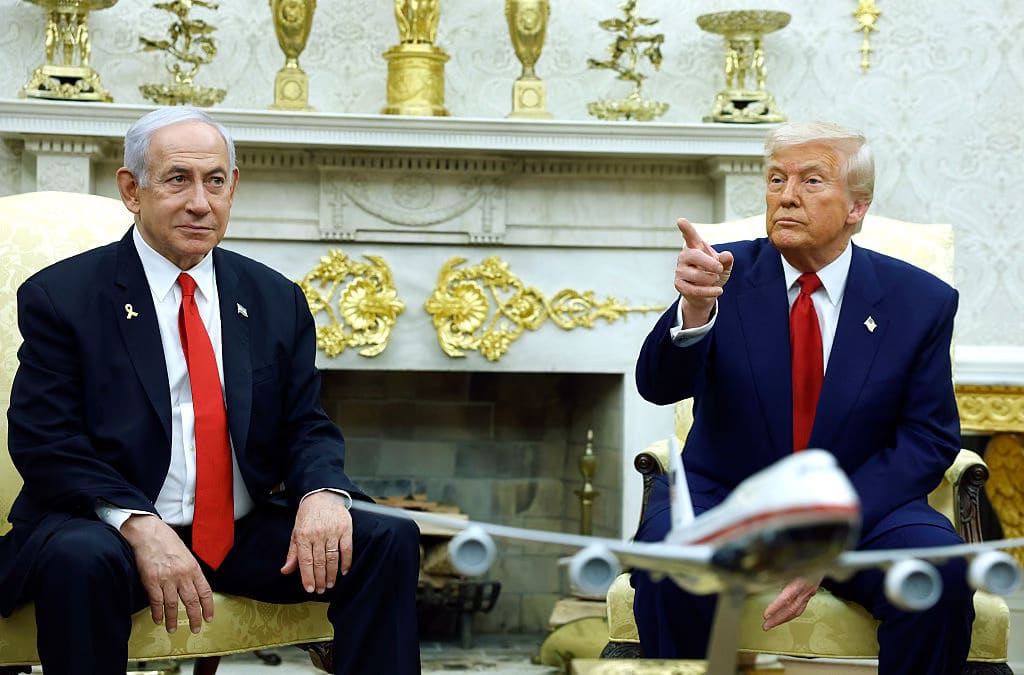Transcript: Sen. Bernie Sanders on "Face the Nation," June 18, 2017
A somber tone struck Washington following Wednesday's shooting during a congressional baseball practice. Among the victims was House Majority Whip Steve Scalise (R-Louisiana), who was shot in the left hip and has since undergone several surgeries.
Sen. Bernie Sanders (I-Vermont) joined "Face the Nation" on Sunday to discuss the tragic shooting, as well as the upcoming health care battle in the Senate.
What follows is a transcript of the interview, which aired June 18, 2017, on "Face the Nation."
DICKERSON: Joining us now is Vermont Senator Bernie Sanders. He's in Burlington. Senator Sanders, I want to start with this week's shooting. In talking to Senator Rubio, he said, "Obviously this was - the man who did the shooting is responsible for his own actions." But in the wake of that and his conversation about what leads to the heated political atmosphere, Senator Sanders- Senator Rubio pointed out that when people try to stop free speech, stop people from talking, it creates pressure in the system that might cause people to act out. What do you think of that theory?
SANDERS: I think he's right. Look. Freedom of speech, the right to dissent, the right to protest, that is what America is about. And politically every leader in this country and every American has got to stand up against any form of violence. That is unacceptable. And I certainly hope and pray that Representative Scalise has a fully recovery from the tragedy that took place this week.
DICKERSON: There's been a lot of protests on campuses when people come to speak. They've been-- People have protested and said they shouldn't be allowed to speak. Where do you come down on that in the context of this put pressure on free speech?
SANDERS: I think people have a right to speak. And you have a right if you're on a college campus not to attend. You have a right to ask hard questions about the speaker if you disagree with him or her. But what- why should we be afraid of somebody coming on a campus or anyplace else and speaking? You have a right to protest. But I don't quite understand why anybody thinks it's a good idea to deny somebody else the right to express his or her point of view. I think, John, what is very clear is we are at a contentious and difficult political moment in our country's history. I have very grave concerns about the Trump agenda right now. We will -- We are looking. We're not looking. There's a health care proposal in the Senate which nobody has seen yet. But the proposal that passed the House, as you know, would throw 23 million Americans off of health insurance. I mean, that to me is just incredible. It would raise premiums very significantly for older workers. It would defund Planned Parenthood and deny 2.5 million women the right to get the health care that they want, cut Medicaid by over $800 billion. You know, we- I and I would the vast majority of the American people have strong disagreements with that approach. But you don't have to be violent about it. Let's disagree openly and honestly. But violence is not acceptable.
DICKERSON: I want to get to the details of that health care plan in a moment or the details you don't know at the moment. But let me just, staying on this question here, is anything going to change in the wake of this in Washington at least in the way lawmakers deal with each other? And is there something that should change?
SANDERS: I think, and, again, where this is such a strange moment is we are looking at a lot of dishonest news that comes across where people are lying outrageously about other people. And I hope that folks on all sides could say, "Look, I disagree with him or her, but that is an outrageous lie." Let us, on the other hand, to be frank, there are real differences of opinion that exist in Congress. It's not like, you mentioned Marco Rubio. I like Marco Rubio. But we disagree on issues. And people should understand it's not that there's all kinds of hatred in the Congress.
There's a fundamental disagreement. President Trump made- brought forth a budget which will go nowhere. But this is a budget that over a 10-year period would give $3 trillion in tax breaks to the top 1 percent, the very wealthiest families in America, while making massive cuts in education, in health care, in nutrition programs. Really devastate the working class of this country. I disagree with that. But obviously that debate has got to be played out based on the facts. And let's debate it.
DICKERSON: Let me move here now to health care. You mentioned some of the policy differences. But there is a procedural debate going on about how this is being handled in the Senate. Some Democrats are suggesting because the- because you don't know what's in the bill and the bill's being worked on in secret to just stop all Senate business, to just shut the place down as a way to kind of force play. Are you onboard with that?
SANDERS: John, here is the situation. We know the legislation that passed the House. It was the worst piece of legislation frankly against working class people that I can remember in my political life in the Congress. Throwing 23 million people off of health insurance is beyond belief. Now, in the Senate what you have is you have I believe it is 10 Republicans working behind closed doors to address 1/6th of the American economy. That's what health care is. Republicans. The average Republican doesn't even know what's in that legislation. My understanding is that it will be brought forth just immediately before we have to vote on it. This is completely unacceptable. I mean, nobody can defend a process which will impact tens of millions of Americans and nobody even knows what's in the legislation. And, John, the important point here is the reason they don't want to bring it public is because it is a disastrous bill. I suspect similar to what passed in the House. Who is going to defend cutting Medicaid by $800 billion at the same time as you give massive tax breaks to the wealthiest 2 percent? So they want to keep it secret. They don't want the media involved. They don't want members of Congress involved. And in the last minute, they present it. They push it through. And that is 1/6th of the American economy and millions of people thrown off of health insurance. That is unacceptable. I believe Democrats should do everything they can to oppose that legislation in any way that we can.
DICKERSON: All right. Senator Sanders, we are at our last. So thanks so much for being with us. And we'll be back in one minute.





